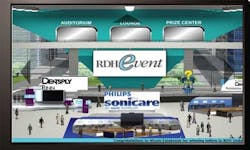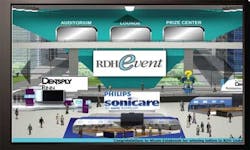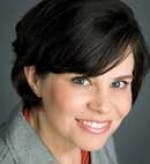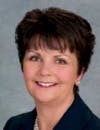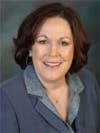RDH Event
Online CE conference brings the show virtually to you
Editor's Note: Rachel Wall, RDH, BS, is the owner of Inspired Hygiene, a consulting firm that coaches dentists on maximizing the benefits of a dental hygiene department. A prominent lecturer, Wall also presented at the 2010 RDH Under One Roof Conference in Orlando. Her course at the March 2011 RDH Event is titled, "Finding Your Why," which aims to help dental professionals develop lasting changes in their careers.
RDH: Rachel, the background for the "Finding Your Why" course sounds like a large part of it may have beenWall: Mark, it has come from my experience as a consultant but also largely from my firsthand experience as a clinical hygienist. I remember a time in the past that I felt uncomfortable "selling" some new product or service because I had not yet developed a strong belief in what I was recommending. It feels inauthentic and forced. That ultimately leads to less than ideal outcomes with regard to productivity, treatment outcomes, and patient acceptance.
It is essential as educators and clinicians that we strongly believe in the products and treatment we're recommending. Often it takes time to develop that belief and it must be based on science but also on the emotion that comes from being ethically responsible for recommending the best care possible and staying abreast of new developments in our industry.
RDH: I know that it varies from person to person. But, in general, what are some of the common goals that you find hygienists desire in achieving professional and clinical success?
Wall: I think we all share a desire for our careers to be about more than punching a clock. Hygiene is a demanding career. I've been fortunate to see hygienists transform from an attitude of "I'm just doing my time before I can retire" to "I'm excited to go to work every day and continuing learning."
I believe that hygienists want to feel that they are contributing to the wellness of their patients and that they are more than the "tooth cleaner." Yet it can be hard to take your career to the next level when you face obstacles such as a schedule that's out of control or a practice culture that focuses on what patients won't accept rather than on how you can create value for services so patients will say "yes." I love helping my clients identify and clear those obstacles so they can really step into their role as healthcare professionals.
RDH: All dental hygiene students accomplish at least some skills in research while in school. But sometimes those skills are forgotten when a career starts. Why do you feel it is so important for hygienists to keep their research skills sharp?
Wall: It's important because there's a new dental product on the market almost daily. We are bombarded with new products and ways of treating patients and we have to evaluate the effectiveness of those new services. We must be able to look at marketing materials, articles, and research outcomes with a critical eye.
But we must also keep an open mind when it comes to new ways of doing things. Again, it's a combination of finding science-based and emotion-based evidence for bringing something new to our patients.
RDH: Along with Dr. Woody Oakes, you produced a CD titled, "The 13 Biggest Dental Hygiene Department Mistakes." Much of the course seems to be based on basic business principles such as obtaining feedback from customers, or patients in this case, and carefully analyzing the dental hygiene services rendered. I don't think we're going out on a limb here by suggesting that dental hygienists should become more involved in developing business strategies for the hygiene operatory. Would you say that's true?
Wall: Absolutely. The hygiene job market isn't what it used to be, and it's increasingly important for the hygiene department to be a growing, productive part of the practice. The best job security comes from being a happy part of the team, maintaining a connection with patients, and also bringing in new ideas for growth in hygiene.
I believe it is our responsibility to be actively looking for new ways to serve our patients and build our practice. If we are complacent bystanders, then we can't complain about the course of events that may downsize or radically change the model of the hygiene department.
RDH: Your seminar at RDH Event will be followed by a live question-and-answer session from attendees. Do you already know what single thing you hope attendees take away from the seminar and begin doing the next day?
Wall: Actually, that's just the point of the course – that attendees will put something they learn from any of the courses they attend into action immediately. It could be something as simple as committing to do a complete perio exam before you start scaling rather than waiting to see if you have time at the end of the appointment. Having a strong "why" behind this will keep you committed even when the schedule is tight and you're tempted to skip it. My single hope is to create awareness of how to develop that strong belief and conviction for taking their care to the next level and keep growing.
Facts about RDH Event
When: March 17-18
Where: Your home, office, whereever it is convenient for you
How: Register at RDHEvent.com
Cost: Registration and all activities at the virtual conference are free. The event is archived for 90 days.
Exhibit Hall Hours:
March 17 – 1:00 p.m. to 8:00 p.m. CDT
March 18 – 9:00 a.m. to 4:00 p.m. CDT
Seminars at RDH Event, March 17-18
Keynote Session: Finding Your Why
presented by Rachel Wall, RDH, BS
Have you ever dissected why you do what you do within the walls of your operatory? Finding a strong "why" – a strong reason to consistently implement new protocols, products, or techniques is a key component to create lasting change that makes a real difference in your career and the lives of your patients. This course will walk participants through real-life examples of crafting a strong "why" behind everyday clinical decisions and recommendations.
Dentistry is well positioned to recognize the signs of individuals that are trapped in dangerous situations. Abuse, neglect, domestic violence, and human trafficking surround us in today's society and leave clear indicators that – if we are properly trained to recognize them – can be detected. This course highlights key warning signs of abuse, neglect, and maltreatment and discusses the most appropriate avenues for aiding these individuals.
Almost nine million people in the United States have disabilities so severe that they require personal assistance to carry out everyday activities. Understanding the needs and tools for serving those clients is vital in your role as a health-care provider. This course will aid you in giving direct care, indirect care, understanding the Americans with Disabilities Act application to the dental setting, and developing a treatment plan and home-care protocol for clients living with disabilities.
This course provides practical and scientific information on air polishing, both supra- and subgingival techniques, for advanced clinical therapy. The basic tenets of air polishing will be discussed in addition to innovative technologies for equipment, nozzle design, and powders.
Past RDH Issues
